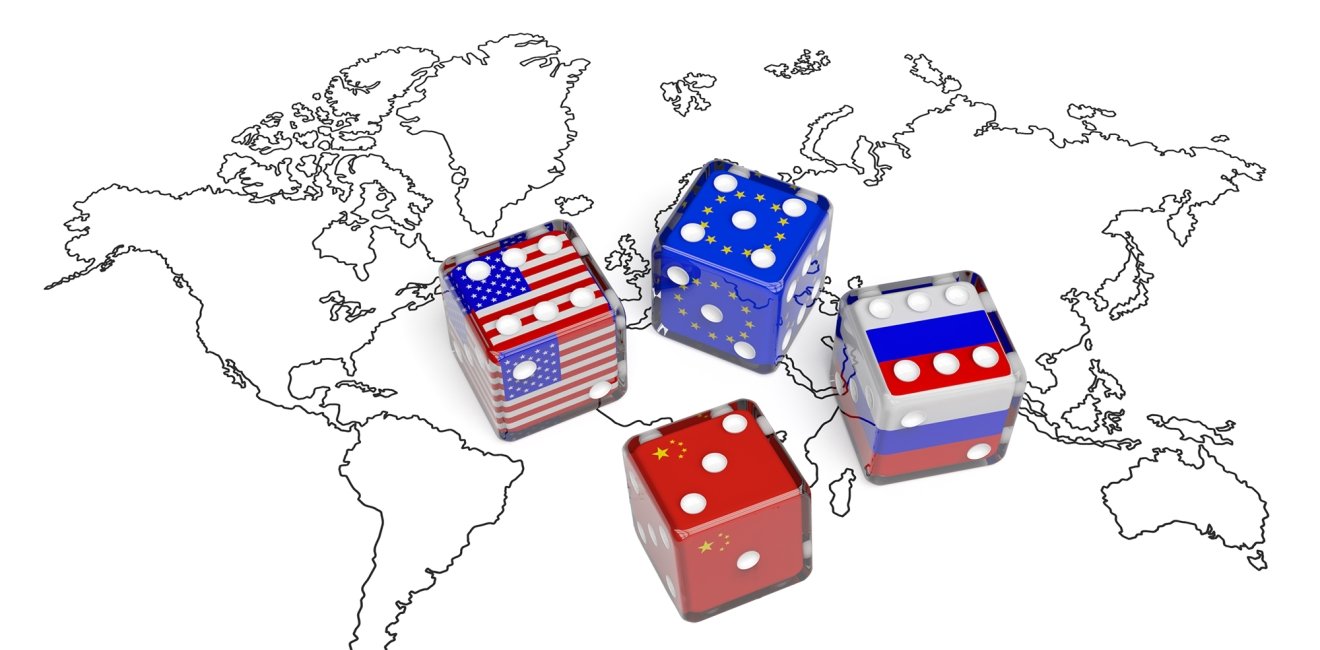
A blog of the Indo-Pacific Program
The character and direction of international affairs are determined in no small part by the relative capabilities of the major powers. There have been many voices over recent years pronouncing the end of the American era. Analysts have forecast the rise of new non-Western powers — India, South Africa, Brazil, Mexico and, possibly, others. Senior officials in the Kremlin have made no secret of their conclusion that the United States is in terminal decline. The most insistent voices have come out of China with President Xi Jinping repeatedly declaring that “the East wind is prevailing over the West wind” and that China will inevitably dominate the 21st century. During negotiations, Chinese diplomats have repeatedly insisted that their U.S. counterparts acknowledge that America’s day has passed. If international politics is seen as a horse race, the message from Beijing is that China will surely win.
>With this backdrop and with the beginning of a new year, it seems an appropriate time to assess the actual balance of international power, now and in the near-to-medium term future. If you were handicapping the international horse race, where would you put your money?
The first thing to note is what has not changed; the anticipated arrival of major new non-Western powers has not happened. In today’s world, there are four power centers: the United States, China, Russia and the European Union. These are the movers and shakers that are shaping the present and the foreseeable future. This is no accident. The modern world is increasingly shaped by advanced technologies and the science that underpins them. Such capabilities are concentrated in a relatively few countries — and the gap between them and every place else is not shrinking; it is growing. Each of the four power centers is quite distinct and must be assessed individually.
- The European Union is an outlier in this group — an assemblage of nations that share geography, history, and culture. The EU is, by any measure, a seminal political, economic, and diplomatic achievement. It has brought peace, stability, and prosperity to a continent that spawned the last two world wars. It exerts huge influence that comes from its attraction to others; from what it offers to its members and partners. But the EU is not a “power” in the conventional geopolitical sense; it is not a unitary actor in the military/strategic arena.
- Russia is a “power” — but a largely unidimensional one. The Russian military gives the Kremlin weight and influence internationally, but Moscow exerts little or no “soft power” attraction to other countries. The Russian economy, that underpins military capacity, is falling behind its peers. The World Bank projects that the economy will grow 2.4 percent in 2022 and only 1.8 percent in 2023 — weighed down by Kremlin policy mistakes plus Western sanctions that have severed Russia’s natural commercial partnerships with Europe. Russia’s increasingly authoritarian political direction, and the corruption that goes with it, have deterred badly needed foreign investment. Russian researchers and students that once could work and study in Berlin, London or Paris now must stay home. The population of Russia declined over the last 30 years and is projected to fall dramatically over the next three decades. Finally, the Russian economy depends heavily on revenues from oil and gas extraction — at a time when governments around the world are moving to sharply reduce their reliance on fossil fuels.
- China’s economy, by contrast, is a veritable juggernaut. China’s GDP is ten times Russia’s and will soon surpass the United States in sheer aggregate size. Beijing has put its economy to work investing vast sums into creating a world-class military. The Chinese navy is now the world’s largest and China’s space program is second only to the United States. Most important, China has moved to the forefront of research and development into advanced technologies that underpin national power, including artificial intelligence, robotics, genetics, and quantum computing.
At the same time, China has undergone an ominous change in the way that it is governed. Before Xi took power, China’s state apparatus allowed considerable room for entrepreneurs, academics, and individual citizens to explore ideas and express their own thoughts. Now China has become a highly centralized, truly totalitarian, police state that brooks no dissent, whether from Hong Kong or a prominent tennis star. Xinjiang and Tibet have effectively become huge open- air prisons. The internet is meticulously monitored and controlled.
All this makes China a hugely efficient and ruthless unitary actor on the international stage. But there are costs that include stifling creativity and contrarian ideas and personalities. There will be no Elon Musks in China. Most important, as power is totally centralized, Xi and the elite around him have one overriding priority — stay in power. Every major decision will be distorted by that imperative.
Both autocratic governments — Russia and China — have projected their lust for power outward into neighboring regions. These ambitions have generated fear and resistance among some smaller neighbors. Moscow and Beijing have responded with intimidation, threats, and outright coercion. The results are on display in two striking and parallel cases. Both Moscow and Beijing seek control over a territory that is nearby, culturally kindred, and claimed as rightfully part of the “motherland.” In the case of Russia, it is Ukraine, and for China, it is Taiwan. In both territories, there was once much popular sympathy for the “motherland” thesis. But Moscow and Beijing have so misplayed their hands with blatant coercion and bullying that both Ukraine and Taiwan now look to a far distant, culturally very different, power — the United States — for protection. The same dynamic is playing out on a larger stage in Europe and in Southeast Asia.
All this seems to leave America, flawed and battered, but still a democracy and still standing, as the last best choice at the geopolitical betting window as 2022 dawns.
Follow the Asia Program on Twitter @AsiaProgram. or join us on Facebook.
Follow the Korea Center on Twitter @Korea_Center or on Instagram at @wilsoncenterkorea.
The views expressed are the author's alone, and do not represent the views of the U.S. Government or the Wilson Center. Copyright 2022, Asia Program. All rights reserved.
Author

Adjunct Professor, Johns Hopkins University; Former Professor of National Security Policy, National War College and Deputy Staff Director, Senate Select Committee on Intelligence

Indo-Pacific Program
The Indo-Pacific Program promotes policy debate and intellectual discussions on US interests in the Asia-Pacific as well as political, economic, security, and social issues relating to the world’s most populous and economically dynamic region. Read more





